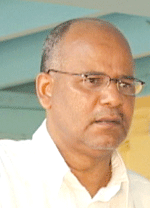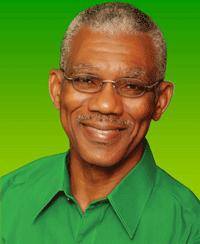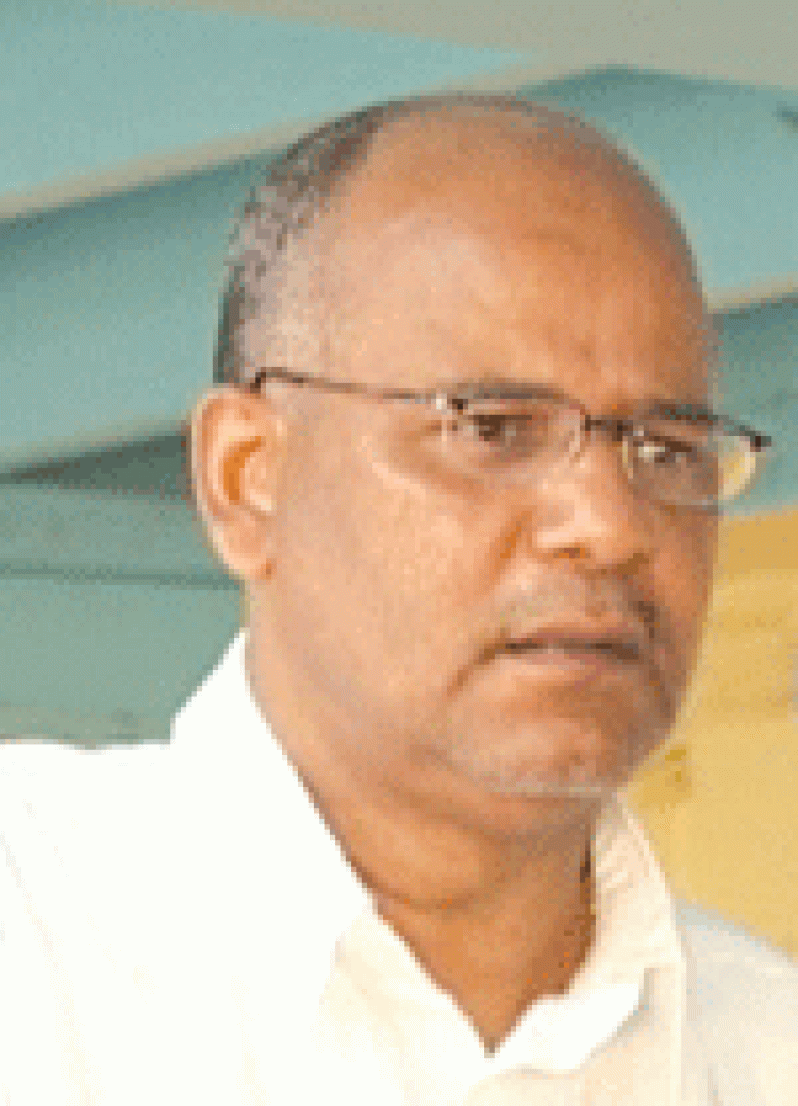– says allegations ‘baseless and unsubstantiated’
THE Ministerial Task Force on Trafficking in Persons (TIP) has rejected the “baseless and unsubstantiated” allegation by Mr. David Granger that the Government is not doing enough to deal with trafficking in persons.  “Although trafficking in persons is certainly not rampant in Guyana, significant efforts have been adopted by Government to combat this phenomenon,” Home Affairs Minister Clement Rohee said in a statement yesterday.
“Although trafficking in persons is certainly not rampant in Guyana, significant efforts have been adopted by Government to combat this phenomenon,” Home Affairs Minister Clement Rohee said in a statement yesterday.
According to him, a combination of Law Enforcement, Social Sector and Community based efforts have been successful in keeping trafficking in persons’ figures very low.
In 2010, there were three victims; in 2011 two victims and in 2012 one victim to date. Rohee noted that while it is almost impossible to totally eradicate any security related threat, Government and its partners have been able to reduce this menace to a bare minimum by adopting a comprehensive approach.
Alluding to the efforts in Division “E” & “F” which has come in for some amount of unfounded criticisms, Rohee said his ministry wishes to “set the record straight”.
This Division geographically covers areas in Regions 1, 7, 8, 9 and 10. It comprises 30 Police Stations and six Outposts. The long-standing disputable viewpoint of whether to restructure this Division possibly resulting in two separate Divisions has not received any robust support within the Guyana Police Force.
As a matter of fact, Rohee said such a move is seen as superfluous. So far the ‘E and F’ model has resulted in fairly good results, superior logistical coordination, greater cooperation in terms of intelligence gathering, and better use of limited resources. Already, one person has been convicted for trafficking in persons resulting from investigations conducted in this Division and, for this year, Rohee said four persons are before the courts for the same offence. This, he said, dispels the view that individuals can exploit other human beings without being apprehended by Law Enforcement in the ‘E and F’ Divisions.
“It must be mentioned that the Guyana Police Force has conducted surveillance and monitoring exercises and raids on bars and shops to detect cases of human trafficking. Further, a number of police checkpoints have been established within E and F Division along with frequent patrols and ‘stop and search’ operations,” Rohee stated.
“The Force is also working closely with the Guyana Gold and Diamond Miners’ Association and the Guyana Geology and Mines Commission (GGMC) and other stakeholders  to ensure more effective management and control of these areas,” he said.
to ensure more effective management and control of these areas,” he said.
In recent times, Rohee said a number of “kayamoos believed to house nefarious activities have been dismantled”. All these strategies, he said, are targeted at a number of crimes including trafficking in persons, illegal weapons and narcotics. Further, owing to the difficulty of the terrain, government has supplied the Guyana Police Force with All Terrain Vehicles (ATVs) to ensure access to difficult locations in this Division.
Recently, the Guyana Police Force has conducted two training programmes for officers and ranks on trafficking in persons. The programmes covered victim identification and trafficking in persons’ investigations. Rohee noted that 41 police officers and ranks were trained, this amount included officers and ranks stationed in hinterland areas.
These training programmes are funded by the government. The aim is to ensure that all police and immigration officials, especially border officials and ranks stationed in the hinterland areas become fully sensitized and capable to respond to trafficking in persons. Government has also continued to recruit and train a number of new police officers. A significant number of these have been stationed at various hinterland locations to beef up law and order in these areas.
He noted, too, that national initiatives aimed at combating trafficking in persons have been undertaken under the guidance of the Ministerial Task Force on Trafficking in Persons which comprises representatives from Governmental and Non Governmental Agencies and is chaired by the Honourable Minister of Home Affairs Clement Rohee.
These initiatives include: proactive monitoring of various locations by the Guyana Police Force so as to identify victims of trafficking in persons; the development and implementation of countrywide awareness campaigns; training of frontline staff and focal point persons; collaboration with non-governmental bodies and community-based organizations; development and implementation of the 2010-2011 Action Plan; and strengthening the institutional infrastructure to respond to trafficking in persons through the creation of a ‘referral mechanism’. Further, a new successor Plan to Combat Trafficking in Persons has been developed.
In addition, government has identified focal point persons across the country and has organized training programmes geared at enhancing their awareness about trafficking as defined in the Recommended Principles and Guidelines. These persons are fully aware of what amounts to trafficking, what forms and types of assistance are available to victims, the penalties of trafficking, and who/where/what may be sought in event of trafficking.
Rohee said government has also collaborated extensively with Help and Shelter to provide temporary accommodation and appropriate support for persons that have been identified as victims of human trafficking. Specifically, government along with its partners provide transportation, accommodation and legal support during trials, counselling, arrange for medical services where necessary, and financial and other support for persons identified as victims of trafficking in persons.
Guyana has developed a working relationship with several neighbouring countries, such as Brazil and Suriname on a number of issues including information exchange on criminal matters and combating trafficking in persons.
The objective of these processes is to foster cooperation to enhance victim assistance and information exchange to tackle trafficking networks. These bilateral engagements offer opportunities to effectively deal with cross border trafficking in persons, strengthen services that target victim assistance and support and increase the likelihood of offenders outside the jurisdiction being apprehended and prosecuted.
Guyana is a signatory to the Protocol to Prevent, Suppress and Punish Trafficking in Persons, especially women and children, supplementing the United Nations Convention against Trans-National Organised Crime. All forms of trafficking in persons are prohibited in Guyana through the Combating of Trafficking in Persons Act 2005.
TIP Task Force rejects Granger’s criticism
SHARE THIS ARTICLE :
Facebook
Twitter
WhatsApp



.jpg)










